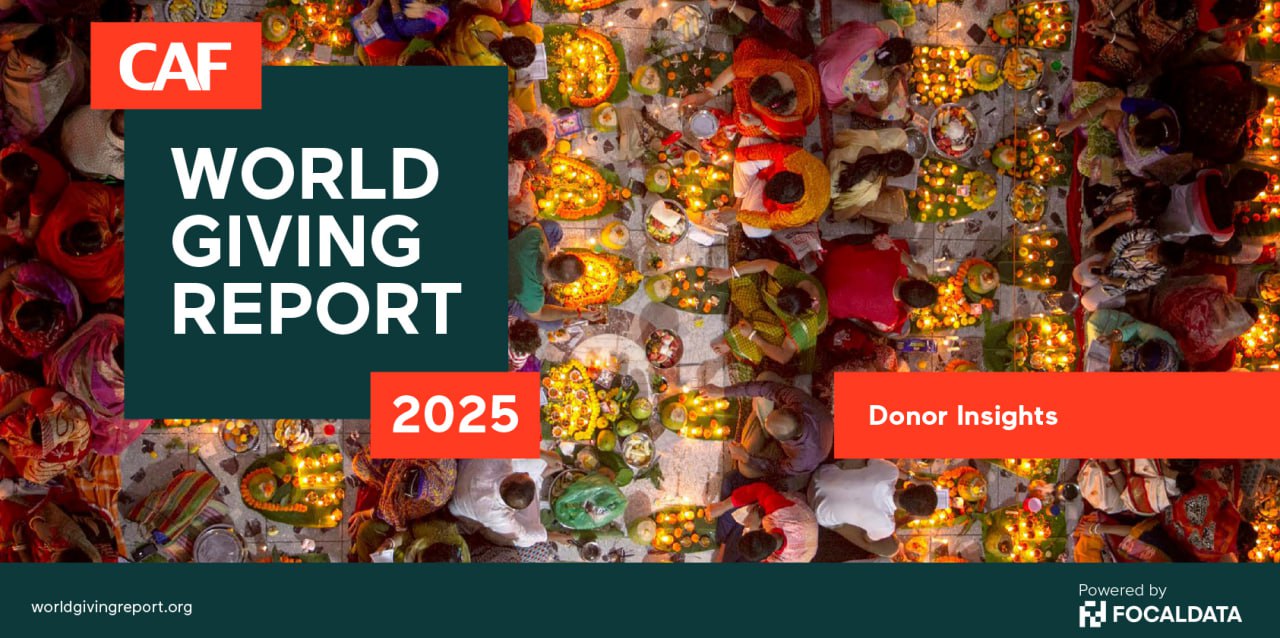Africa Leads in Global Generosity
The Charities Aid Foundation’s (CAF) World Giving Report 2025 reveals compelling insights into global philanthropy trends, placing Ethiopia prominently at 22nd in the world for generosity, with its people donating an average of 1.51% of their income to charitable causes, direct aid, and religious giving in 2024. This achievement is part of a broader narrative highlighting Africa as the most generous continent globally, where individuals give a substantially higher share of their income compared to other regions.
Africa’s generosity is unmistakable in the 2025 report, which for the first time introduces a fair and inclusive measure of generosity across 101 countries and territories. Africans donated on average 1.54% of their income in 2024, more than double the 0.64% average in Europe and significantly higher than many other continents. This generosity transcends the economic challenges many African countries face, illustrating that giving is driven more by social and communal bonds than by wealth alone.
At 22nd place globally, Ethiopia’s donors contributed a notable 1.51% of their income, reflecting a strong culture of giving despite the country’s developmental challenges. Ethiopia exemplifies the continent’s spirit of generosity, which is often rooted in community solidarity and religious traditions. The report underscores that giving is multifaceted, encompassing direct giving to those in need, donations to charities, and religious giving — a particularly significant channel in African societies.
The World Giving Report highlights that almost three-quarters of Africans (72%) donated money in 2024, with 55% giving directly to people or families in need and 40% supporting religious organizations. The social fabric, informed by shared values and cultural norms, encourages giving as a communal responsibility. Religious encouragement plays a pivotal role; donors whose giving is motivated by religion tend to support more causes and give a higher percentage of their income—averaging 2.2%, compared to 1.4% among others—demonstrating that religious giving activates broader philanthropic behavior.
Ethiopia, together with many African nations, demonstrates this dynamic interplay between personal faith, community responsibility, and generosity, indicating a model where philanthropy forms a lifeline for vulnerable populations amid ongoing economic pressures and social needs.
The report also sheds light on the causes that globally engage donors, with children and young people being the most supported group worldwide, representing 29% of donors in 2024. African donors, including those in Ethiopia, tend to support a wide array of causes, averaging around three different causes per donor, reflecting a holistic approach to philanthropy. Environmental causes receive growing attention, with Africa seeing 13% of donors supporting them, driven by awareness of climate vulnerabilities impacting the continent. Neighboring countries like Nigeria, Ghana, Kenya, and Uganda rank close to Ethiopia in generosity, all donating over 2% of their income on average, emphasizing the depth of giving in Africa.
Volunteering is another critical indicator of generosity where Africa takes a lead. Approximately 39% of Africans volunteered in 2024, dedicating an average of 14 hours and 30 minutes per person, far exceeding volunteering patterns in Europe and Asia. Religious organizations remain the most popular volunteering beneficiaries in Africa, reflecting the continent’s strong intertwining of faith and social support.
Ethiopia’s philanthropy and volunteerism landscape benefits from this cultural foundation, reinforcing social cohesion and community resilience. The report recounts stories from across Africa of how local philanthropy fills critical gaps left by constrained government resources, making giving a vital support system for sectors like health, education, and humanitarian aid.
The report also addresses broader global trends, noting that generosity tends to decrease as countries grow wealthier, with high-income countries donating just 0.7% of their income on average, and some of the least generous nations being among the wealthiest, such as Japan and Germany. In contrast, lower-income African nations, including Ethiopia, consistently show higher generosity levels, underpinning the continent’s leading role in global philanthropy despite financial constraints.
The findings emphasize the importance of social norms in fostering generosity. Countries where people cite strong social reasons—such as religious duty and community expectation—for giving donate nearly three times as much as those where such norms are weaker. Governments that encourage giving help establish these positive social norms without coercion, making people more likely to donate voluntarily. In Africa, where governments may face budget constraints, the role of individual and community generosity becomes even more crucial.
The World Giving Report 2025 also stresses the challenges charities face globally, especially amid declining government aid and rising humanitarian needs. For Ethiopia and many African nations, this means local philanthropy plays a vital role in supporting community-based and humanitarian efforts. The report highlights the importance of transparency and effective communication by charities to sustain trust and encourage continued giving.
“This research offers a window of opportunity,” says Jessie Krafft, President and CEO of CAF America. “The strength of giving in Africa, and Ethiopia in particular, demonstrates how philanthropy can be a powerful force to support the most vulnerable in times of crisis and uncertainty. Enhancing partnerships, fostering social norms, and harnessing local expertise are critical to building resilience.”
Ethiopia’s position in the World Giving Report is a testament not only to its citizens’ generosity but also to the deeper social values that underpin giving in Africa. As international aid faces cutbacks, the reliance on vibrant local giving cultures becomes ever more important, ensuring communities can weather challenges and build a sustainable future.
The Charities Aid Foundation’s World Giving Report 2025 invites policymakers, philanthropists, and civil society worldwide to learn from Africa’s stewardship of generosity and strengthen global philanthropy efforts by centering local context, culture, and connection. Ethiopia’s generosity stands as a leading example of how giving can flourish even in the face of adversity, inspiring a more equitable and supportive world community.



